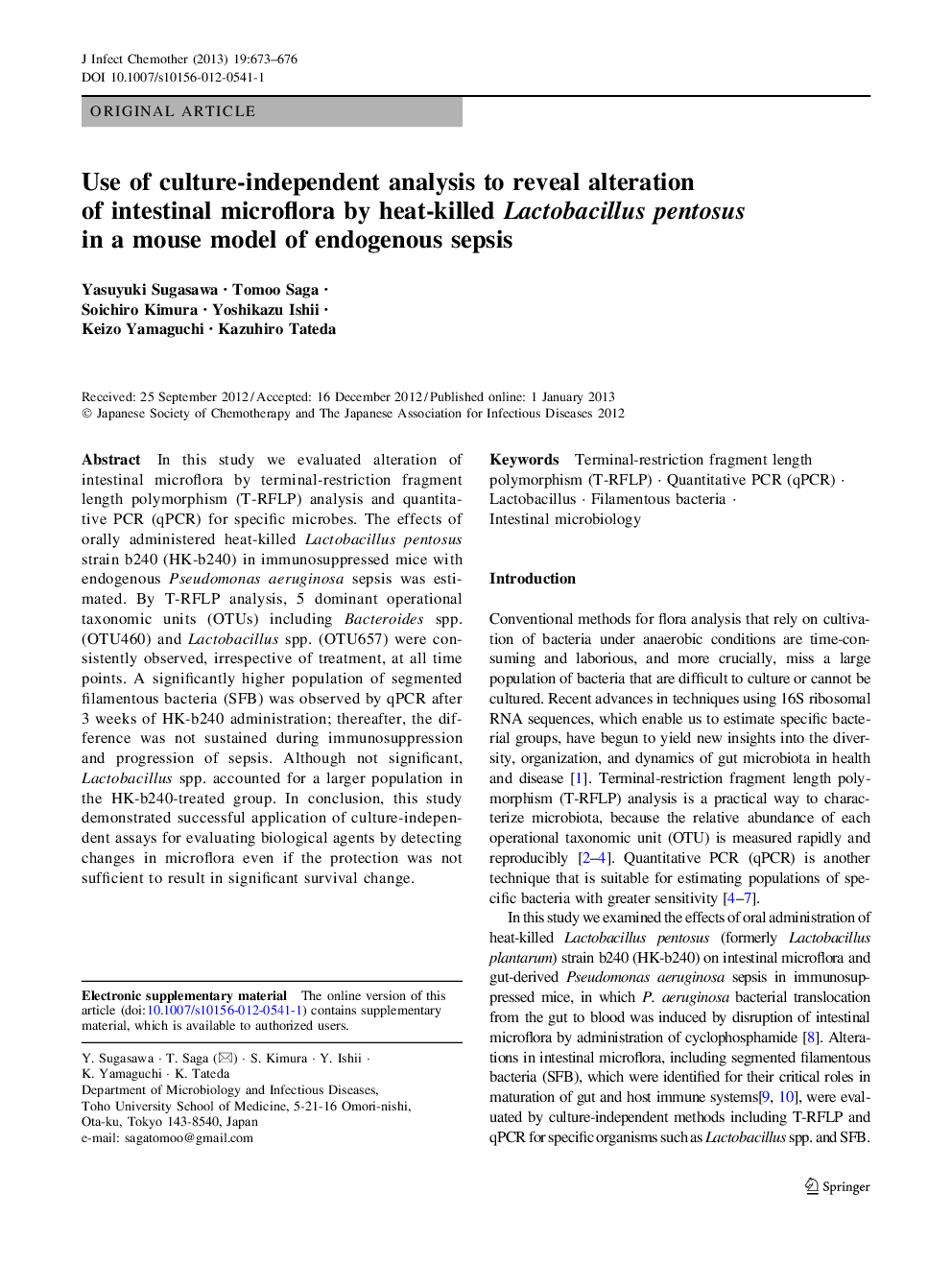| Article ID | Journal | Published Year | Pages | File Type |
|---|---|---|---|---|
| 6123917 | Journal of Infection and Chemotherapy | 2013 | 4 Pages |
Abstract
In this study we evaluated alteration of intestinal microflora by terminal-restriction fragment length polymorphism (T-RFLP) analysis and quantitative PCR (qPCR) for specific microbes. The effects of orally administered heat-killed Lactobacillus pentosus strain b240 (HK-b240) in immunosuppressed mice with endogenous Pseudomonas aeruginosa sepsis was estimated. By T-RFLP analysis, 5 dominant operational taxonomic units (OTUs) including Bacteroides spp. (OTU460) and Lactobacillus spp. (OTU657) were consistently observed, irrespective of treatment, at all time points. A significantly higher population of segmented filamentous bacteria (SFB) was observed by qPCR after 3Â weeks of HK-b240 administration; thereafter, the difference was not sustained during immunosuppression and progression of sepsis. Although not significant, Lactobacillus spp. accounted for a larger population in the HK-b240-treated group. In conclusion, this study demonstrated successful application of culture-independent assays for evaluating biological agents by detecting changes in microflora even if the protection was not sufficient to result in significant survival change.
Keywords
Related Topics
Life Sciences
Immunology and Microbiology
Applied Microbiology and Biotechnology
Authors
Yasuyuki Sugasawa, Tomoo Saga, Soichiro Kimura, Yoshikazu Ishii, Keizo Yamaguchi, Kazuhiro Tateda,
